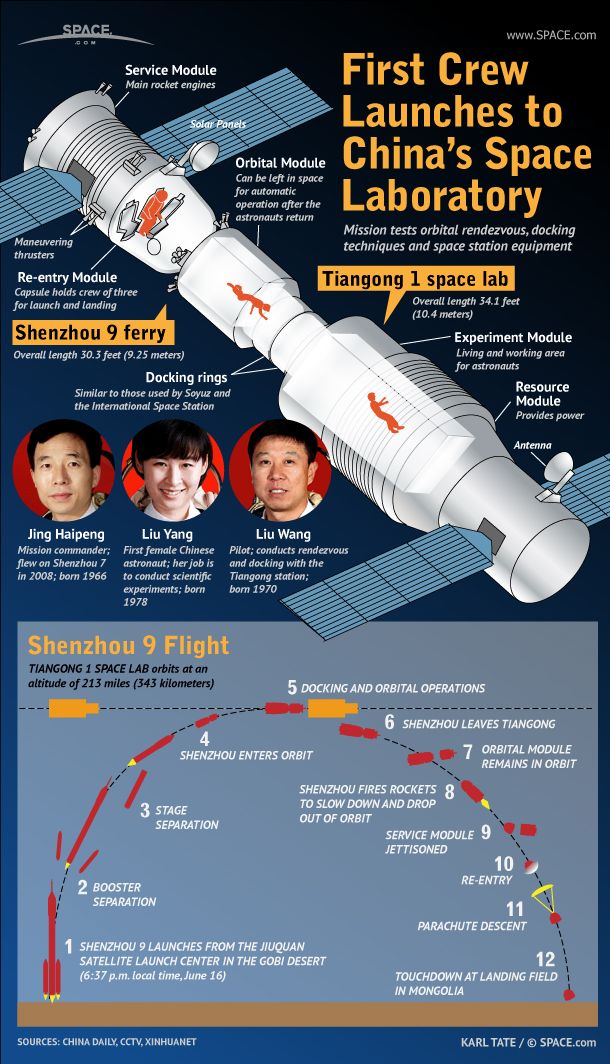China's space program has taken a significant leap forward with the successful launch of astronauts to its Tiangong space station. This achievement marks a pivotal moment in China's journey to establish itself as a leading force in space exploration, rivaling traditional space powers like the United States and Russia. The mission underscores China's commitment to advancing its capabilities in space technology and human spaceflight.
The Tiangong space station represents a monumental milestone in China's space endeavors. Designed to be permanently crewed, this orbiting laboratory serves as a testament to China's growing expertise in space science and engineering. With each successful mission, China inches closer to fulfilling its ambitions of becoming a dominant player in the international space community, showcasing its technological prowess on a global stage.
Achieving New Heights: Shenzhou-12 Paves the Way
The first crewed mission to Tiangong was Shenzhou-12, which launched on June 17, 2021, carrying three astronauts. This historic mission marked the beginning of operational activities at the new space station. During their three-month stay, the astronauts conducted various experiments and tested essential equipment necessary for long-term habitation in low Earth orbit. Their efforts laid the groundwork for future missions and demonstrated the viability of sustaining human life aboard Tiangong.
Shenzhou-12 not only highlighted China's ability to execute complex space operations but also emphasized the importance of international cooperation in space exploration. By sharing data and findings from this mission, China contributed valuable insights to the global scientific community, fostering collaboration and understanding among nations pursuing similar goals.
As the first extended stay aboard Tiangong, Shenzhou-12 set the stage for subsequent missions, proving that China is capable of supporting prolonged human presence in space. This achievement bolstered confidence in the country's space program and inspired further advancements in space technology and research.
Pioneering Astronauts: Training and Preparation
Chinese astronauts Deng Qingming, Fei Junlong, and Zhang Lu underwent rigorous training before embarking on the Shenzhou 15 mission. Their preparation included simulations, physical conditioning, and technical briefings to ensure readiness for the challenges of space travel. Each astronaut brought unique skills and expertise to the mission, contributing to its success.
The selection and training process for these astronauts reflect China's dedication to maintaining high standards in its space program. By investing in comprehensive preparation, China ensures that its astronauts are well-equipped to handle the demands of living and working in space. This commitment to excellence positions China as a formidable contender in the realm of space exploration.
With their extensive training and unwavering determination, Deng Qingming, Fei Junlong, and Zhang Lu exemplify the spirit of innovation and perseverance that drives China's space ambitions. Their mission to Tiangong symbolizes the nation's resolve to push the boundaries of human knowledge and capability in space.
Tiangong: A Permanent Home in Space
A new crew of three Chinese astronauts, including the country's only woman spaceflight engineer, entered the Tiangong space station following an early morning launch into orbit. This mission marked another significant step toward establishing Tiangong as a permanent outpost for scientific research and technological development. The inclusion of a female astronaut highlights China's commitment to diversity and inclusion in its space program.
As a permanently crewed space station, Tiangong provides a stable platform for conducting experiments and observations that contribute to humanity's understanding of the universe. Its location in low Earth orbit allows for continuous monitoring of Earth's environment and climate, offering valuable data for addressing global challenges such as climate change and natural disasters.
The establishment of Tiangong as a permanent space station underscores China's long-term vision for space exploration. By creating a sustainable presence in space, China aims to inspire future generations and drive innovation across various fields, ultimately benefiting humanity as a whole.

